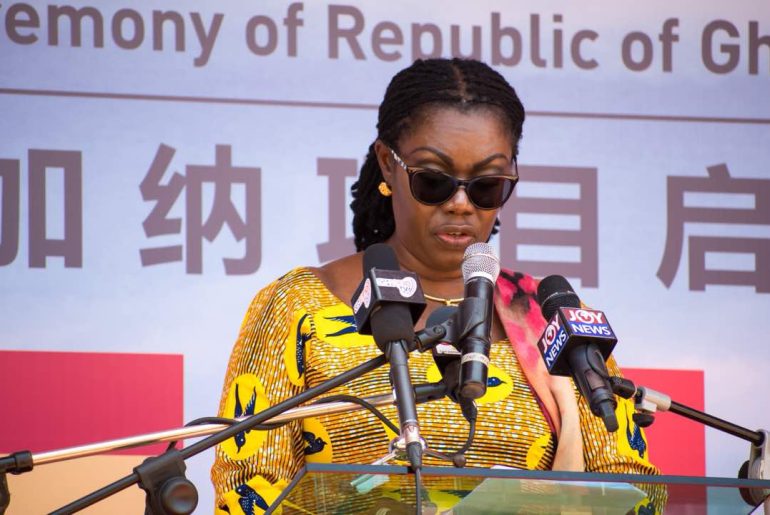The government of Ghana is making significant progress in its efforts to improve rural connectivity and digital inclusion in the country. With a target to construct 3,500 rural telephony sites in unconnected communities, the initiative aims to benefit four million people with better access to voice and data communications.
According to the Minister of Communications and Digitalisation, Ursula Owusu-Ekuful, a total of 1,010 sites have already been constructed, with an additional 1,006 sites in the process of completion. These efforts are part of the Ghana Rural Telephony and Digital Inclusion Project (GRT&DIP), which is focused on building 3,500 cell sites to bridge the digital divide.
Speaking at the third edition of the Tech Fair at the University of Energy and Natural Resources (UENR) in Sunyani, Mrs. Owusu-Ekuful highlighted the importance of digital technology in driving economic growth and social inclusion. She emphasized the need for digital transformation across all sectors of the economy to ensure competitiveness in the emerging digital revolution.
Furthermore, the government is investing in digital literacy and training programs to equip individuals with the necessary skills to thrive in the digital economy. Initiatives like the Ghana-Indian Kofi Annan Centre of Excellence in ICT have trained over 50,000 individuals in digital literacy, artificial intelligence, and data analytics. Additionally, efforts to encourage girls to pursue STEM-related courses and careers are underway, with training programs for teachers and students alike.
The focus on enhancing digital security, establishing STEM senior high schools, and creating a robust digital infrastructure underscores the government’s commitment to building a digitalized Ghana. The integration of digital technology into the educational system is also a priority, with calls for reforms to include digital literacy as a core curriculum component from basic to tertiary levels.

